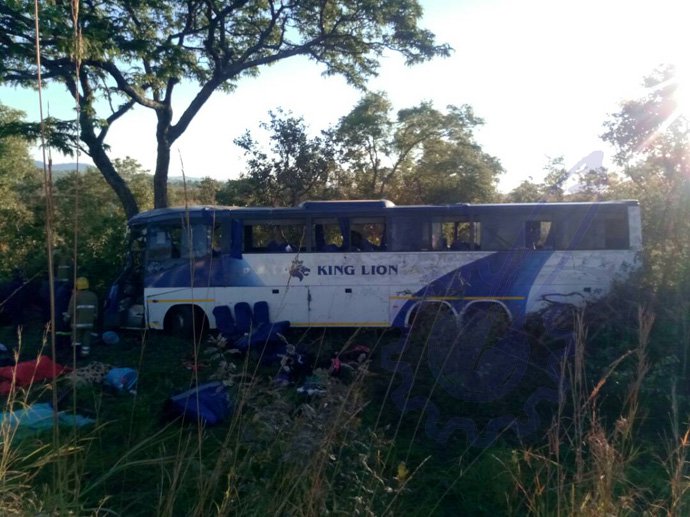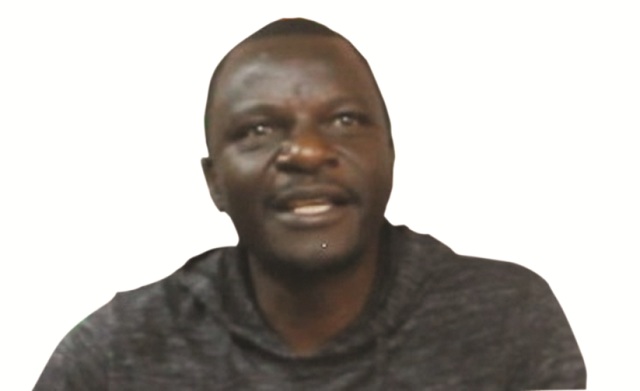EDITORIAL COMMENT: Public transporters must avoid night journeys

The country is in mourning once again after yet another road traffic accident claimed 43 lives on Wednesday night in Hurungwe, Mashonaland West Province.
A Zambia-bound King Lion bus veered off the road at the 257km peg and rammed into a tree, killing the 43 and injuring at least 30 passengers. Just as we were beginning to get over the April crash that killed 21 people in Chirumanzu, Midlands Province, we have been hit by the Wednesday disaster.
It would be an understatement to say that our roads are becoming death traps, they already are. They have been death traps for a long time. It is saddening that many of our people continue to lose their lives and are getting hurt in road accidents.
We express our deepest condolences to the families that have been left behind following the Hurungwe catastrophe and wish the injured a speedy recovery.We regret too, that many of the victims are leaving behind spouses and orphaning children and weakening families.
In the Wednesday disaster, most of those who lost their lives were cross border traders who were travelling to Lusaka, Zambia for business.
These are people who spend much of their time on buses importing various goods for resale back home. They work hard for themselves and their families but met cruel fate on that night.
Considering the high frequency of accidents, many would be justified to dread embarking on journeys on our roads, now real highways to death. You never know if you will arrive safely where you are going.
But as police always say, most of the accidents are caused by human error, mistakes and misjudgments that road users make leading to the fatalities. Perhaps if the King Lion bus driver had not taken to the road at night, he and the 42 others would have been alive. Perhaps if he was driving at a safer speed, he and the 42 others would be alive today. If only he or his employer heeded police advice to people to avoid travelling at night and at high speeds this accident may not have occurred.
Said Acting President Emmerson Mnangagwa in a statement last night:
“I learnt with deep grief of the tragic loss of 43 lives in a road traffic accident involving a Lusaka-bound bus which occurred after Karoi. That such a huge loss of precious lives comes soon after a spate of similar traffic accidents along our roads enjoins all stakeholders, principally public transport operators and other road users, to introspect on their scheduling decisions, conduct and behaviour while in transit. Whatever limitations there might be on our infrastructure, specifically on the state of our roads, clearly these limitations by themselves need not preordain a tragic fate on innocent and trusting commuters.
“There is a lot which owners and users of vehicles, as well as those mandated to enforce traffic laws, can do to avert such tragic disasters whose result is needless loss of lives, physical injury and incapacitation. Time and time again the police have discouraged road users, especially public transport operators, from embarking on night travel as well as chasing after profits without due regard to the safety of their patrons.”
At least 1 700 people die in road traffic accidents in Zimbabwe annually, while 30 000 are injured. These are worryingly high statistics indeed. Yes, it is impossible to eliminate road accidents. No country, even the more developed ones, have been able to do that. However, too many occur in our country. We must check them.
Law enforcement agents need to intensify educational programmes advising road users to adhere to the rules. That they must avoid speeding, driving at night or when visibility is poor. That they must always drive roadworthy vehicles, be always sober when on the wheel and so on. Training programmes for public service drivers must continue and policing on the roads needs to be toughened as well.
Employers must temper their pursuit for money by ensuring that their drivers work during the day, not at night. Also, they must keep their buses in tip top condition.
Since road accidents will always occur from time to time, there is a need for measures to limit their impact on the survivors and dependants of the departed.
One intervention being considered is the Motor Vehicle Accident Fund being worked on by the Ministry of Transport and Infrastructural Development to cushion families in the event of road traffic fatalities or injuries.
Transport and Infrastructural Development deputy Minister Engineer Michel Madanha, speaking in Harare yesterday, said Zimbabwe was one of a few countries in Sadc yet to establish such a fund.
This fund must be put in place as soon as possible along with other measures to reduce road fatalities.











Comments